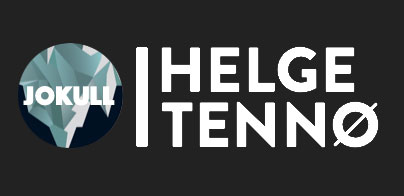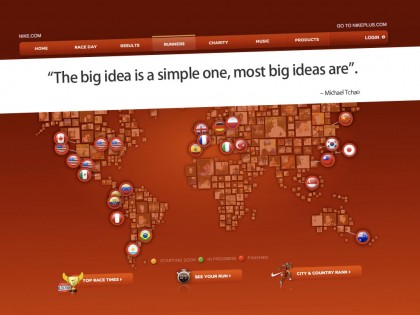It’s not the enormousness of the operation or the extreme effort that went into it that makes the Nike+ such a brilliant representative for the future of marketing, branding AND advertising. It’s their focus on truth and human dynamics, as opposed to preconceived ideas and technological mechanics.
To cut right to the point…
What makes Nike+ so utterly amazing is how they looked through the lens of human dynamics when focusing on:
- 1. Why are our products so important?
2. Who can we motivate how?
3. Which kind of data is accessible?
And putting all of this together under the umbrella:
- “How can digital technology enhance our product experience, and by that our brand.”
The second stroke of genius was their refusal to accept preconceived ideas. I hadn’t thought of this before regarding Nike+, but listening to Michael Tchao, General Manager of Nike Techlab / Nike+, today at Picnic it dawned on me how many “rules” they broke:
- 1. Several of the existing ideas concerning runners where wrong
hormonal milieu) and penile or cavernosal factors (e.g.Rather viagra pill.
. Not that they where wrong at the time of their conception, but the change of culture and technology during the last years had changed the consumers and the old ideas proved to be non-representative.
2. Running isn’t about what we portray it to be (lonely runners in advertising running into eternity). Its about motivating each other and being part of a bigger whole.
3. Even if it is technology and a tool, the interface still has to look desirable
. (As D.Norman have said, people invest more time in understanding and using stuff that is beautiful).
4. What is data? To many brands limit their notion of data to what has been or can be written down or recorded through audio or video recorders, but as Nike found out; running is all about data: Speed, distance, pulse, steps etc. Anything one can measure is in essence a part of an important dataset people would want to share.
The challenge I would put to ANY brand out there is to look at Nike+ not for what it is, but for how they thought, and try to find the same BIG IDEA for your own company, no matter the size.
- “The big idea is a simple one, most big ideas are”.
– Michael Tchao

